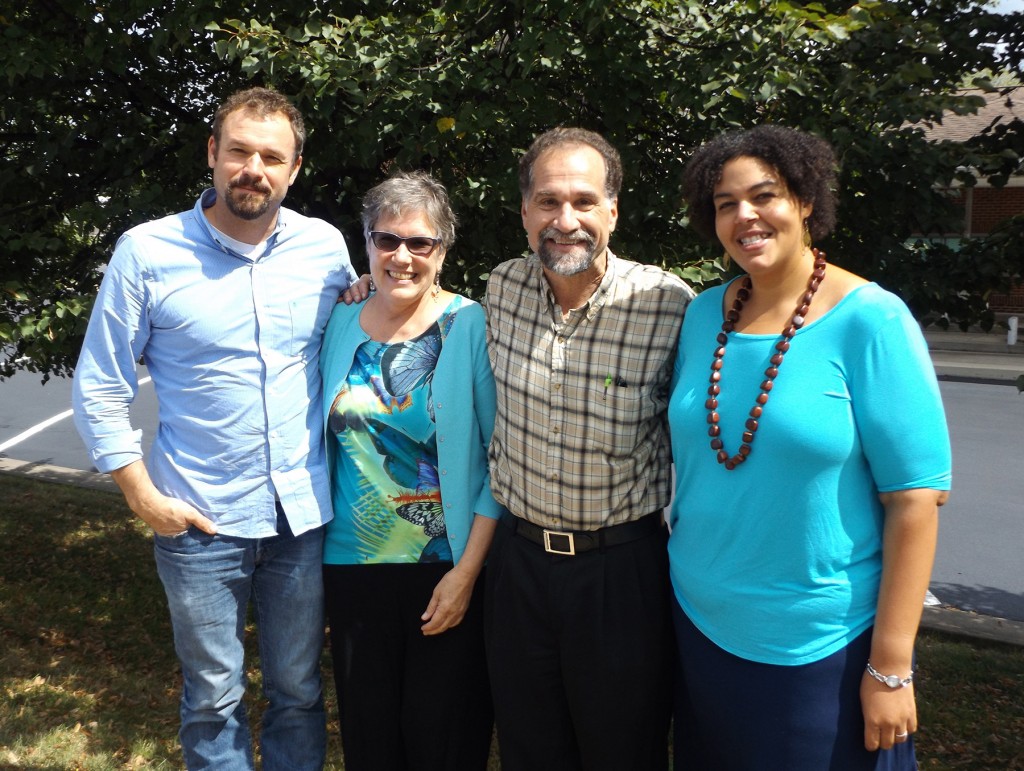A Mennonite congregation is going through a restructuring process. Its members sense that the 20- and 30-somethings in its community desire a different model for congregational life, but they don’t have a clear plan or vision to make the change. What is the next step?
The answer: Cooperative by Design (CBD), which describes itself as “a consortium of peacebuilding practitioners, each committed to creating a more just and peaceful world by enabling healthier families, organizations, communities, and societies.” Initially growing out of a network of peacemakers in Arizona in the early 1990s organized by CBD member and Eastern Mennonite University graduate Tom Brenneman, the consortium today includes ten members, seven of them with EMU connections.
The congregation contacted CBD member Dave Brubaker, associate professor of organizational studies at EMU’s Center for Justice and Peacebuilding (CJP). Brubaker and a recent CJP alumnus facilitated a conversation that led to a vision statement and a plan to move the congregation from a board-commission structure to a more flexible, team-based model. It was unanimously adopted.
Grounded in faith
Church consultations like that one comprise the majority of CBD’s work, but the practitioners’ diverse skills are also applied in a variety of other settings. Their focus areas include change management, strategic planning, congregational revitalization, conflict transformation, mediation, facilitation, coaching and training.
Brubaker says the work is deeply grounded in faith and spirituality.
“To me it is a reflection of God’s desire for a more peaceful and just world,” Brubaker says. “If we can do it congregation by congregation and organization by organization, then we’re participating in God’s vision, even when we’re doing it imperfectly.”
Much of the work comes from referrals, about one a month on average, but CBD recently formalized one relationship when it entered an agreement to partner with the North Carolina-based Center for Healthy Churches (CHC) and assist CHC in its work with congregations in Virginia. Particular attention will be given to proactive initiatives that address conflict before it reaches the crisis stage.
“We encourage people to consider consultants at an early entry point of a conflict or strategic planning,” says CBD member Jane Ellen Reid, who also serves as university ombudsman for EMU. “We very much encourage people to be open, transparent and involved—including those who may have a contrary vision. Stepping into (conflict) can be a healthy, normal, practical thing.”
‘Holders of the process, not the solution’
Brubaker says he and Reid recently worked with a “Level 5” conflict in a congregation that had let a problem fester too long, as many congregations and other groups do. “One of the toughest I’ve ever done,” he says. “It’s good when congregations are more proactive. It’s so much more effective at the front end.”
The CBD members emphasize that they are not some sort of peacemaking superheroes who can speed in and solve a conflict. They simply provide an outside perspective, help all voices be heard, and give guidance for the way forward. “Reference teams” composed of key stakeholders in the situation at hand are formed to carry out the desired outcome.
“We are holders of the process, not the solution,” says CBD member Roxy Allen Kioko, a graduate of EMU’s master’s in conflict transformation program and instructor with the Summer Peacebuilding Institute and in EMU’s business department. “A lot of consultants go in and make a recommendation and the congregation is supposed to implement it. But a lot of times it fails because there is no ownership of it. By collaborating with a diverse and well respected team within the congregation, they take ownership. They are involved from day one, from assessment to implementation and follow-up. It’s a unique thing about our model that can hopefully lead to better success.”
